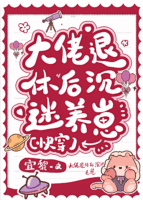Farm System C31
by MarineTLChapter 31
“Global Weekly: From December to January, Longxia imported 302.605 million tons of grain, a year-on-year increase of 230%, ranking first among global importers.”
“Global Times: Since the second half of 3027, global grain prices have risen by 23%, and Longxia has become the largest buyer.”
“World Grain Report: Behind Longxia’s grain imports.”
…
While Longxia continued to operate in an orderly fashion, turbulence shook the international grain market.
According to international news reports, since December 3027, Longxia had been aggressively stockpiling grain on the global market. As for the reason…
Longxia presented its environmental initiative from three months prior.
With severe environmental pollution, Longxia was preparing for food reserves.
“A terrible policy…”
At 8 p.m. on February 15, in a high-end office building in Natal, Garcia gloomily watched the grain report.
Garcia was a grain trader. In June of the previous year, he had stockpiled 300,000 tons of soybeans, planning to sell at peak price. But just as he was ready to sell, Longxia began large-scale stockpiling. Due to the massive shift in supply and demand, international soybean prices rose from 3,500 yuan/ton to 4,200 yuan.
Garcia decided to wait and see for another half month.
In that time, soybean prices climbed to 4,500 yuan. At the same time, Natal issued its latest policy: The Natal Grain Export Restriction Act.
The reason for Natal’s export restriction was simple: Longxia had stockpiled 300 million tons of grain in just three months. The behavior was so abnormal that Natal took it very seriously.
Following the issuance of the restriction, several other countries followed suit.
Garcia, as a soybean trader, didn’t care about international affairs—only about his 300,000 tons of soybeans. Now that exports were restricted, the most direct consequence was that he couldn’t sell his soybeans…
“Damn it!”
Garcia lit a cigar.
He deeply regretted not selling sooner.
“Mr. Garcia…”
Amid his frustration, the office door opened.
It was George, the deputy manager of the company.
“When will the export restrictions be lifted?” Garcia asked directly.
“End of February at the earliest,” replied the deputy manager.
Natal was the world’s top grain exporter. The current restrictions were already affecting its domestic economy. If the situation remained unclear, Natal would have no choice but to lift the restrictions.
After chatting a while, the deputy manager asked, “Should we still fulfill the earlier orders?”
According to the Natal export regulation, contracts signed before the restrictions could still be honored. They had previously reached a preliminary agreement with Longxia, but the contract hadn’t been signed yet—it was still under negotiation.
“What’s the price?” Garcia asked.
“450 Natal.”
1 Natal = 10 Longxia yuan, making Longxia’s quoted price equivalent to 4,500 yuan.
Garcia fell into thought.
If Natal lifted the restrictions, global soybean prices would surely plummet. He now had two options: 1, continue to wait; 2, sell now.
Garcia quickly made his decision: “Sell.”
A businessman chases profit. Compared to the alarming talk of a food crisis, he preferred to have Natal currency in hand.
“Sell the grain.”
“Let’s wait until March…”
“Those damned Longxia people.”
…
At the same time Garcia was selling, grain traders around the world were making different decisions.
Though Longxia’s actions were unusual, it had to be admitted that every move it made attracted global attention.
…
“Three hundred million tons imported—about the maximum we could do over three months.”
On February 16, Liu Wensheng opened the latest file and spoke.
For the past six months, Longxia had been consciously increasing its grain reserves. While stockpiling, it faced two options: 1, stockpile silently; 2, alert the world to the food crisis.
Longxia chose the second. The reasons were—
Longxia’s aggressive stockpiling was so abnormal that no matter the explanation, the world would tighten its grain exports.
Outside of Longxia, five billion people still depended on food. Letting a food crisis unfold would trigger global chaos.
A food crisis was a war against all humanity.
…
From any angle, Longxia had to raise the alarm.
“We just published ‘The Impact of Heavy Rainfall in Harma’…” Liu Wensheng continued.
Since the 13th, light rain had appeared in southern Mali. It was still considered ordinary rainfall, but according to international meteorological monitoring, a colder air mass was forming in Harma’s deep sea region. This mass was similar to the Harma Storm group mentioned by Qin Yun.
Over the past three months, Longxia had negotiated environmental governance with Mali, but current technology couldn’t prevent the formation of the cold air mass. Coupled with the unstable international situation, Longxia’s efforts had been largely futile.
After hearing about the recent policies, Qin Yun said, “We’ve done our best.”
“We really have,” Liu Wensheng sighed.
Longxia was not the savior of the world. In the face of global disaster, their priority had to be the survival of Longxia’s people.
Knock knock! Just then, someone knocked on the office door.
“Come in.”
Zhang Hu saluted first, then said excitedly, “The sweet potatoes are ready!”
Ten days ago, though Qin Yun and Liu Wensheng had grumbled about how stingy the system was, they immediately tilled land to plant the [Mutated Sweet Potatoes] as soon as they got them.
The mutated sweet potatoes cost 5,000 points per mu, matured in 10 days, and were the system’s highest-level crop.
The two had been busy with wheat breeding and hadn’t expected the sweet potatoes to ripen quietly…
“Let’s go!” Liu Wensheng put on his coat and headed out.
By now, the farm had over 300 workers. When the two arrived at the sweet potato field, two workers were already digging. The sweet potato vines and leaves were enormous, each leaf at least 50 cm across. Before the two could react, a worker tugged hard and pulled out a massive sweet potato.
It was huge—like a supersized winter melon.
The worker placed it on a digital scale: 30 KG net weight.
“Commander Liu, Secretary Qin.”
The research staff greeted them and reported on the sweet potato: “The Fengshan sweet potatoes weigh between 30 and 33 KG each. Yield per mu is 30,000 jin. The sweet potatoes have thin skin, red flesh, and fat content around 0.15%. Exact data is still being calculated…”
“What’s the yield per mu?” Liu Wensheng asked directly.
“Thirty thousand jin.”
Sweet potatoes are annual herbaceous plants. Normally they yield 4,000 to 6,000 jin per mu, and in excellent regions up to 8,000. Liu Wensheng had expected the system’s product to exceed 10,000, but never imagined it would triple that.
“The genetic composition of the Fengshan sweet potato resembles our Dong Province’s Yan sweet potato. We should attempt crossbreeding the Fengshan and Yan strains…” The researcher was a professor of sweet potatoes from the Longxia Agricultural Institute and had participated in crossbreeding varieties like Dongshu 019 and Shenshu 113.
Sweet potato breeding was simpler than wheat. The professor had been immersed in the sweet potato field these ten days, and based on the data, was ready to start crossbreeding research.
“Good, good!” Liu Wensheng said with great excitement.
The farm’s land was limited, and until now he had thought sweet potatoes weren’t urgently needed. But now… he realized he’d been too cautious!
…
“Longxia News: A Discussion on How Heavy Rainfall in Mali Affects Global Climate.”
“Longxia Daily: Save Food, Save Energy, Start with Me.”
“Longxia Agriculture: First Batch of Longfeng 001 Successfully Sown…”
…
As the farm focused on serious cultivation, news related to ‘Longxia’s agricultural policy’ and ‘heavy rainfall in Mali’ kept trending. Driven by such headlines, citizens across the country began discussing the possibility of a food crisis and consciously started reducing food waste.
“The news is really over-the-top these days…”
At the second cafeteria of Su Province University, Zhao Shengbo scrolled through TreeCat and complained.
For the past two weeks, TreeCat had been filled with videos promoting food conservation. The more Zhao Shengbo watched, the more bored he became.
He tossed his phone aside. “This is just making a fuss over nothing. We’ve got so much grain, I haven’t seen anyone starve to death.”
“Our grain shortage is pretty serious. Globally, six hundred million people don’t have enough to eat,” Wang Mengying replied from across the table.
They were both students at Su University. They’d met last year and had been dating for three months.
Zhao Shengbo frowned. “That’s in poor places like Mali. We’re not short on food.”
“We are,” Wang Mengying said, repeating what she’d just seen in a government promo.
Unable to argue back, Zhao Shengbo clung to his opinion. “Meals out cost two or three hundred these days. No way a grain shortage is going to affect us.”
Wang Mengying didn’t respond—he wasn’t wrong, technically.
“My dad found me an internship. We should go together. I’ll work during the day, and you can cook for me at home…” Zhao Shengbo tried to change the subject.
They were both media majors and now in their senior year, doing internships. Many of their classmates had already taken positions in other cities.
“My grandpa already made arrangements. I have to go back home,” Wang Mengying said.
“Go where?”
“Back home to farm.”
She wasn’t just saying it casually. Her family lived in Changlong County, Huainan. When the government began land reallocation, her grandfather registered their land and signed a private cultivation contract for 500 mu. Now that Longfeng 001 was being promoted in Su, Zhe, and An provinces, her family had called twice asking her to come back and help manage things. She’d been wavering for a while, but after listening to Zhao Shengbo’s idiotic takes, she finally made up her mind.
“That mountain village of yours?” Zhao Shengbo was stunned.
“Yeah…”
“How much land do you guys have?”
“Five hundred mu.”
“You’re a college student and you’re going back to farm?” Zhao Shengbo thought she must have lost her mind.
To put it nicely, she was returning to start a business. Less nicely—she was throwing her future away to rot in the countryside right after graduation.
“And cooking for you is a future?” Wang Mengying grabbed her bag and stood up. There wasn’t much emotional foundation in their three-month relationship, and Zhao Shengbo’s smug superiority only made her feel dumber by association.
“I’m leaving,” she said and walked off.
Zhao Shengbo felt like his pride had taken a blow. “If you go back, we’re done.”
“Idiot.”
He wondered if he’d just imagined her saying that.
Half an hour later, Wang Mengying was back at the dorm packing her things.
“You really broke up with Zhao Shengbo?” asked a classmate who’d stayed behind.
“Yeah.”
She wasn’t thinking about Zhao Shengbo. Her mind was on farming. She’d been following national policies for a while and knew the government was putting heavy support behind agriculture. Online, there were articles about Longxia’s “Harma Impact.” Some netizens thought the Harma disaster was impossible. Others had already begun stockpiling food.
Early the next morning, Wang Mengying returned to Pingshui Town.
At the town bus stop, Wang Xuecai was waiting. When he saw her, he waved enthusiastically.
“Grandpa!” Wang Mengying ran up and gave him a hug.
“You’re back?”
“I’m here to plant wheat.”
She didn’t have many virtues, but she believed in the country.










0 Comments